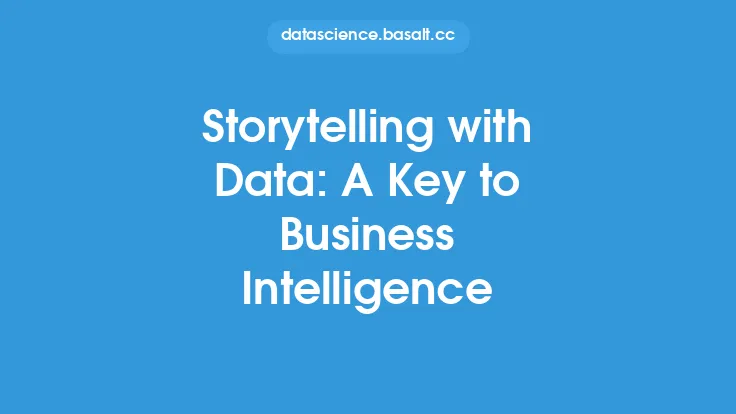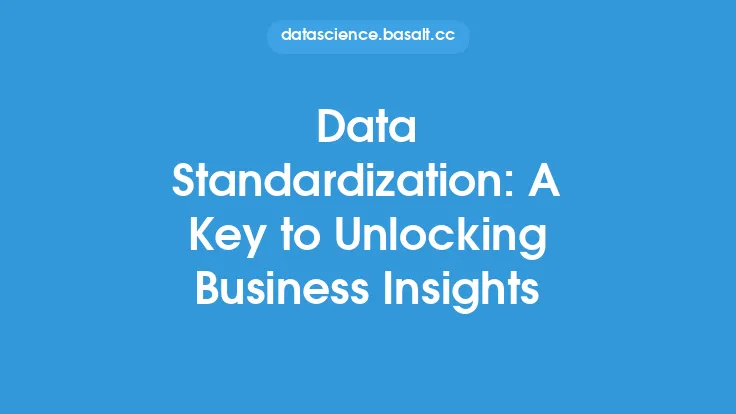In today's data-driven world, organizations are generating and collecting vast amounts of data from various sources, including social media, customer interactions, and internal operations. This data has the potential to unlock valuable insights that can inform business decisions, drive innovation, and improve overall performance. However, without effective data management, this data can become a liability, leading to confusion, inefficiency, and poor decision-making. Effective data management is the process of planning, organizing, and controlling the data assets of an organization to meet its information needs. It involves a range of activities, including data governance, data quality, data security, and data analytics.
Introduction to Data Management
Data management is a critical component of any organization's data strategy. It involves the development and implementation of policies, procedures, and standards for managing data across its entire lifecycle, from creation to disposal. Effective data management requires a deep understanding of the organization's data assets, including its structure, content, and context. It also requires a range of technical and non-technical skills, including data modeling, data warehousing, and data analytics. Data management is not just about storing and retrieving data; it's about ensuring that data is accurate, complete, and consistent, and that it's available to the right people at the right time.
Data Governance
Data governance is a key aspect of data management. It refers to the overall management of an organization's data assets, including the development and implementation of policies, procedures, and standards for data management. Data governance involves defining the roles and responsibilities of data owners, data stewards, and data users, as well as establishing processes for data quality, data security, and data compliance. Effective data governance requires a clear understanding of the organization's data assets, as well as its data-related risks and opportunities. It also requires a range of technical and non-technical skills, including data modeling, data warehousing, and data analytics.
Data Quality
Data quality is another critical aspect of data management. It refers to the accuracy, completeness, and consistency of an organization's data assets. High-quality data is essential for informed decision-making, as it provides a reliable and trustworthy basis for analysis and reporting. Data quality involves a range of activities, including data validation, data cleansing, and data normalization. It also involves the development and implementation of data quality metrics and benchmarks, as well as processes for monitoring and reporting data quality issues. Effective data quality requires a deep understanding of the organization's data assets, as well as its data-related risks and opportunities.
Data Security
Data security is a critical aspect of data management. It refers to the protection of an organization's data assets from unauthorized access, use, disclosure, modification, or destruction. Data security involves a range of activities, including data encryption, access control, and authentication. It also involves the development and implementation of data security policies, procedures, and standards, as well as processes for monitoring and reporting data security incidents. Effective data security requires a deep understanding of the organization's data assets, as well as its data-related risks and opportunities.
Data Analytics
Data analytics is a critical aspect of data management. It refers to the process of analyzing and interpreting an organization's data assets to extract insights and meaning. Data analytics involves a range of activities, including data mining, predictive analytics, and data visualization. It also involves the development and implementation of data analytics tools and techniques, as well as processes for monitoring and reporting data analytics results. Effective data analytics requires a deep understanding of the organization's data assets, as well as its data-related risks and opportunities.
Benefits of Effective Data Management
Effective data management has a range of benefits for organizations, including improved decision-making, increased efficiency, and enhanced innovation. It provides a reliable and trustworthy basis for analysis and reporting, and enables organizations to unlock valuable insights from their data assets. Effective data management also improves data quality, reduces data-related risks, and enhances data security. It enables organizations to comply with regulatory requirements, and to demonstrate transparency and accountability in their data management practices.
Best Practices for Effective Data Management
There are a range of best practices for effective data management, including the development and implementation of data management policies, procedures, and standards. It's essential to establish clear roles and responsibilities for data owners, data stewards, and data users, and to define processes for data quality, data security, and data compliance. Organizations should also invest in data management tools and techniques, such as data warehousing, data analytics, and data visualization. Effective data management requires a deep understanding of the organization's data assets, as well as its data-related risks and opportunities.
Challenges and Opportunities
Effective data management is not without its challenges and opportunities. One of the biggest challenges is the sheer volume and complexity of data assets, which can make it difficult to manage and analyze. Another challenge is the lack of standardization and consistency in data management practices, which can lead to confusion and inefficiency. However, there are also opportunities for innovation and improvement, such as the use of artificial intelligence and machine learning to automate data management tasks, and the development of new data management tools and techniques.
Conclusion
In conclusion, effective data management is critical for unlocking business insights and driving organizational success. It involves a range of activities, including data governance, data quality, data security, and data analytics. Effective data management requires a deep understanding of the organization's data assets, as well as its data-related risks and opportunities. It also requires a range of technical and non-technical skills, including data modeling, data warehousing, and data analytics. By following best practices and investing in data management tools and techniques, organizations can improve their decision-making, increase their efficiency, and enhance their innovation.





